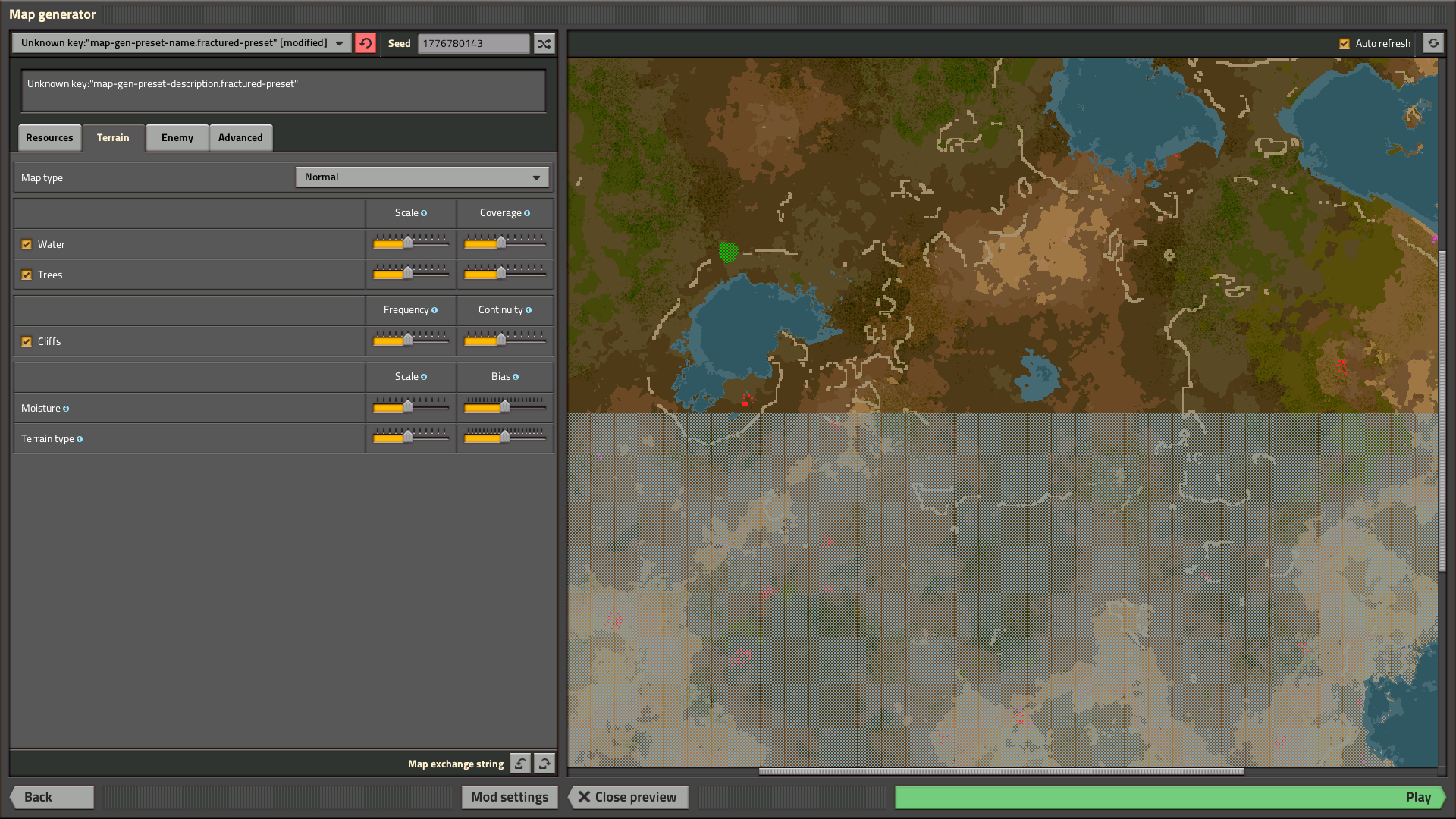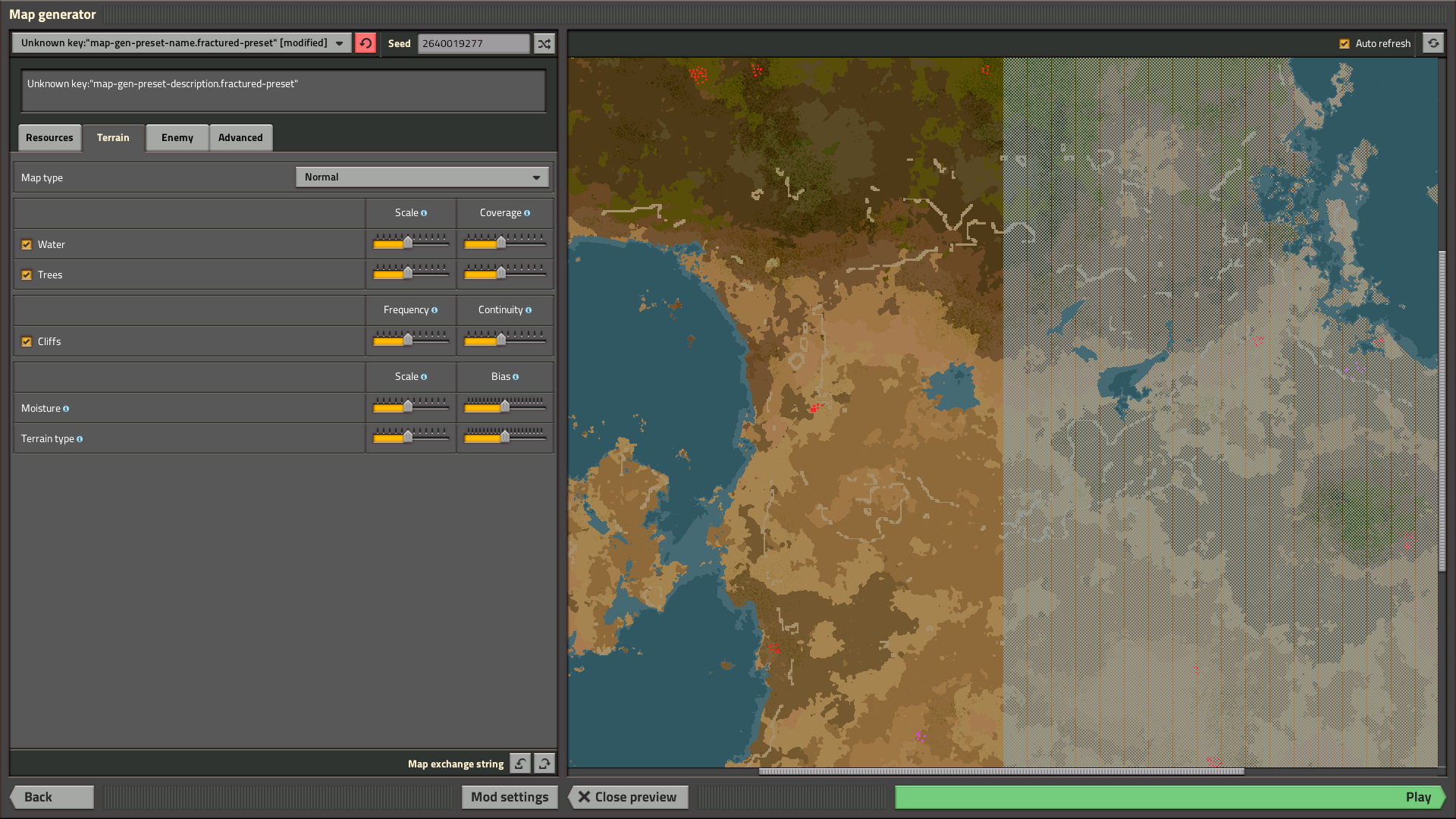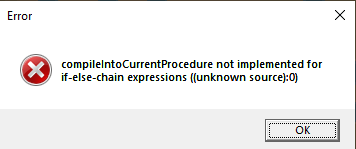Fix noise.terrace(), or expose floor() and/or modf() to noise expressions
Posted: Sun Jun 07, 2020 5:10 am
Greetings!
While playing around with some noise expression stuff, I came across the same issue in this post: viewtopic.php?f=25&t=83807&p=489988&hil ... ce#p489988. To illustrate what the terrace function is supposed to do given the code that was provided, see the graph of variable b in the following link: https://www.desmos.com/calculator/daav2vjkcs. Subtracting x from the result, if the "strength" is 1, gives a modulo function, which is what I desire. Of course, I ran into the same issue as mooman did, that the terrace function seemingly does not work for either of negative x or negative y, even if it does not consume that respective variable in that expression. Given below is one way to reproduce the issue, using the value of iron ore richness as a debug tool:
Which produces the following kind of map:

As you can see, there are bands of ore, with the richness being 0 for every x value that's divisible by 32. However, the function fails for y < 0, even though y is referenced nowhere in the expression.
I request that the matter be at least given cursory investigation, and failing a solution being found there, the pure floor() function (alternatively modf()) used in the underlying c++ being made available for use.
While playing around with some noise expression stuff, I came across the same issue in this post: viewtopic.php?f=25&t=83807&p=489988&hil ... ce#p489988. To illustrate what the terrace function is supposed to do given the code that was provided, see the graph of variable b in the following link: https://www.desmos.com/calculator/daav2vjkcs. Subtracting x from the result, if the "strength" is 1, gives a modulo function, which is what I desire. Of course, I ran into the same issue as mooman did, that the terrace function seemingly does not work for either of negative x or negative y, even if it does not consume that respective variable in that expression. Given below is one way to reproduce the issue, using the value of iron ore richness as a debug tool:
Code: Select all
--modulo function derived from noise.terrace()
local function modulo(val, range)
range = range or 1
return val - noise.terrace(val, 0, range, 1)
end
--noise expression wrapping that function
data:extend{
{
type = "noise-expression",
name = "new-iron-ore",
expression = noise.define_noise_function(
function(x, y, tile, map) return modulo(x, 32) * 100
end)
}
}
--applying that noise expression to iron ore within a map preset, and allowing iron ore to always take precedence
local mgp = data.raw["map-gen-presets"].default
mgp["test-preset"] = {
name = "fractured-preset",
order = "z",
basic_settings = {
property_expression_names = {
["entity:iron-ore:richness"] = "new-iron-ore",
["entity:iron-ore:probability"] = 100
},
},
}

As you can see, there are bands of ore, with the richness being 0 for every x value that's divisible by 32. However, the function fails for y < 0, even though y is referenced nowhere in the expression.
I request that the matter be at least given cursory investigation, and failing a solution being found there, the pure floor() function (alternatively modf()) used in the underlying c++ being made available for use.

